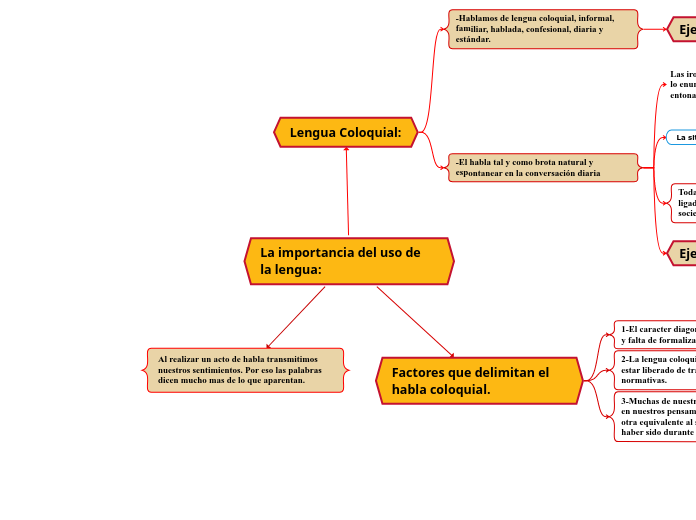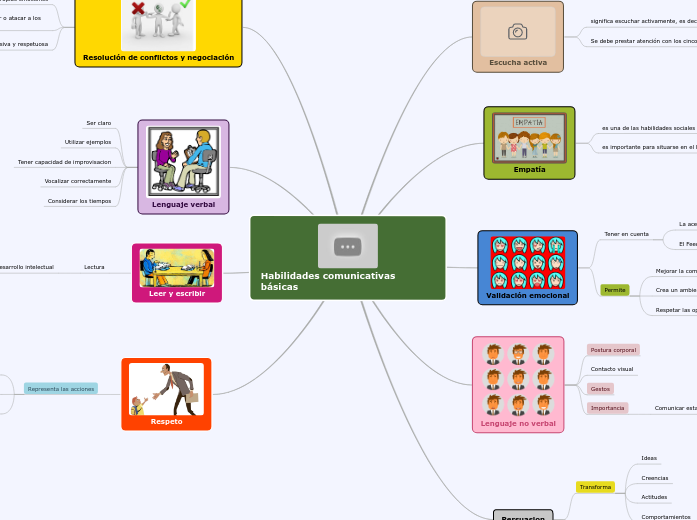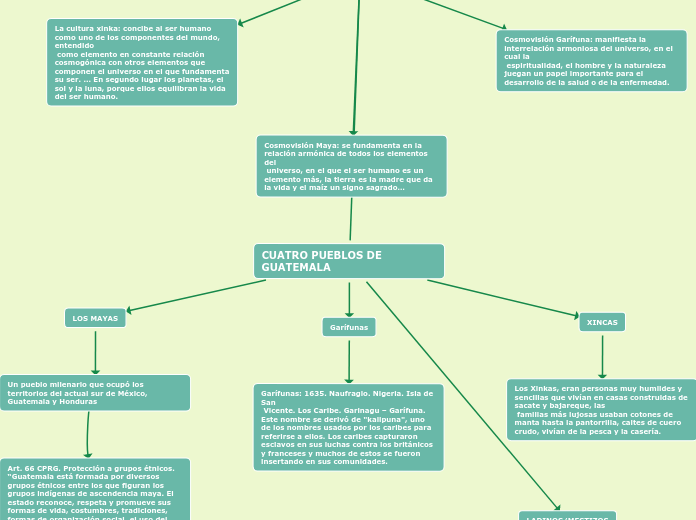La importancia del uso de la lengua:
To name your story, you have to think about the overall message and what you want your audience to understand from the story. Also, make it relevant and easy to remember.
Al realizar un acto de habla transmitimos nuestros sentimientos. Por eso las palabras dicen mucho mas de lo que aparentan.
The ending of a story is essential. We all know that if the ending is weak, what happened before loses its importance. So make it unpredictable, but fair. A resolved ending answers all the questions and ties up any loose threads from the plot.
Factores que delimitan el habla coloquial.
The middle of the story is where you add layers of complications that will lead to the end. Reveal more about the character's journey. Did their personality go through changes? How did they overcome the challenges? And as you build up the story’s central conflict, make it more personal to that character. Also, from the middle act, you have to lead into the final act.
3-Muchas de nuestras palabras solo existen en nuestros pensamientos porque usamos otra equivalente al ser la palabra tabú (o haber sido durante el tiempo)
There wouldn't be any tension and excitement in your story if there weren't any obstacles in your character's way.
2-La lengua coloquial es mas dinamica al estar liberado de trabas sintaticas normativas.
Your character(s) need(s) motivation in order to solve the challenge(s).
1-El caracter diagonal oral, la espontaneidad y falta de formalizaciòn reflexiva
Each story has a main character and that character usually needs to solve a problem or challenge. The character's challenge is the one that creates tension throughout the story.
Lengua Coloquial:
In the beginning of the story (or the exposition), you will need to introduce the setting and characters. You might also want to introduce the main conflict. This part of the story is important because it gives the reader necessary background information and maybe even a first insight into a character’s personality.
-El habla tal y como brota natural y espontanear en la conversación diaria
The setting (time & place) of a story can change throughout the plot.
Ejemplos:
Sensory details include sight, sound, touch, smell, and taste. These details are important because they create depth in your setting.
See a few examples below:
- the smell of fresh bread
- the scent of freshly cut grass
- rain falling onto the windshield etc.
Lava huevos.
Sopa de muñeca.
Todas estas expresiones están íntimamente ligadas a la cultura de una comunidad, sociedad.
The weather is an important element in your story because it can highly influence the ambiance and the mood of the characters.
Dichos locuciones giros dinamicos.
The most affected character is the main character. Write down here if he/she is affected by these weather conditions in any way. For example, if they lost a family member or their home during a hurricane, etc.
Fraseologicas
Decide if you want to include an element of nature in your story. For example, a rainbow can be a very nice choice for a happy ending. The mist in a story can represent mystery and secrets. A thunder can appear in the background at the moment when the 'bad guy' of the story makes its appearance, etc.
Se domina a estas combinaciones de palabras con el nombre de unidades marginales:
Does your story include catastrophic weather? See a few suggestions below or add your own:
- hurricane, earthquake, storm, etc
La situaciòn comunicativa se modifica:
The time of the story can also change. It can describe the event of a single day or can include an entire year's plot. Anyway, don't forget to mention it.
El factor de la edad es importante los jóvenes son los que mayor uso haven del argot, renovándolo al adaptar jergas marginales
El modo de expresion individual y adentro del dialecto.
Las ironías en el acto del aula desmintiendo lo enunciado el gesto la mirada y la entonación.
Your story can take place wherever your imagination will take you to.
For example: in an elevator, in an enchanted forest, etc. Don't forget to give details of the environment each time the setting changes, otherwise, the story can be confusing. Also, mention the seasons as each of them has unique weather and events.
-Hablamos de lengua coloquial, informal, familiar, hablada, confesional, diaria y estándar.
Characters are essential to a good story. Usually, the protagonist(s) is/are the most affected by the plot. Introduce a character by focusing on their actions, interests, and occupation, as the physical appearance doesn't make a difference in most cases.
Ejemplos
Type in the name of your character.
¿No has visto la tele?
Add other qualities/attributes of the character.
¿Y si vamos al cine en vez de al teatro?
What is your character's main goal?
fight Evilfind lovedefeat his/her enemyrule the worldmake friendstime travelmake an awesome discoveryOther
¿Que quiso decir?
Which traits best describe the character's personality? Choose more if necessary:
introvertedloyalkindindependentquick-thinkingadventuresomeidealisticsweet-naturedcalmrisk-takercreativewittystrictfussyweirdclumsyharshaggressivecarelessclingingcowardlycrueldeceitfulimpulsiveOther
-A lo mejor
Choose the type of your chacter:
Protagonist (main character)Antagonist (main character's opponent)Flat (stereotypical character)Round (his/ her personality develops throughout the story)Static (doesn't evolve as a person throughout the story)Dynamic (dramatical change in personality)Confidant (the main character trusts him/ her)Foil (contrasting character who enhances the personality of another character)Other










